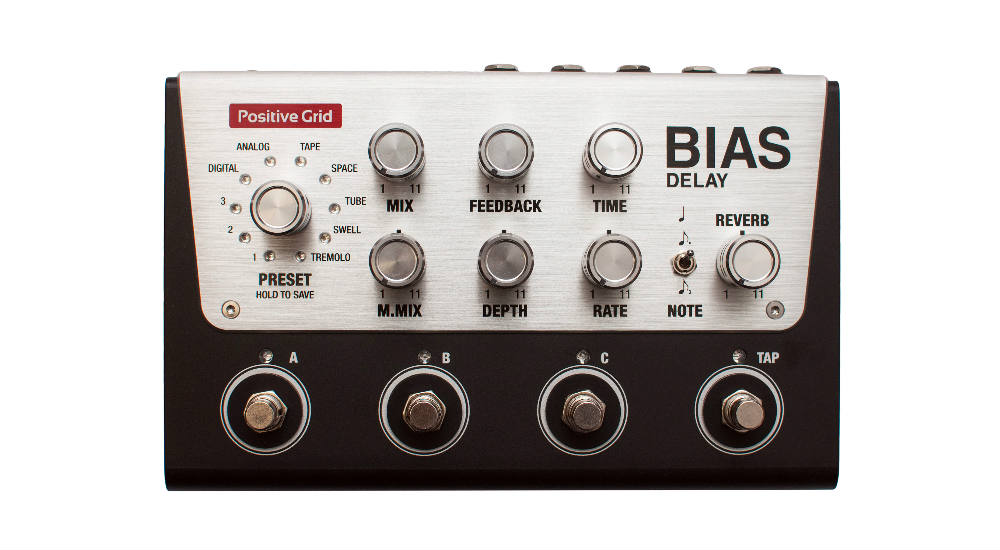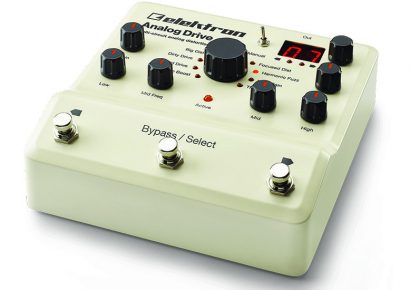This pedal seamlessly integrates with BIAS Pedal Delay for mobile and desktop, and is ToneCloud-ready for sharing presets. In a way you can almost think of it as a hardware extension of all the wonderful sounds you cooked up on your digital devices. On the hardware side, there are digital, analogue, tape, space, swell, reverse and tremolo modes, plus three preset slots. There are knobs for mix, feedback, time, mod, depth and rate as well as a reverb control—a great addition because delay and reverb integrate so well with each other.
There’s also a tempo subdivision switch between eighth notes, dotted eighths and eight note triplets. There are footswitches for three presets plus a tap tempo switch as well. Around the back are stereo inputs and outputs, an expression pedal jack for real-time control of any parameter, a USB port, MIDI in-thru and a wireless button to connect with BIAS Pedal iPad via Bluetooth.
BIAS Delay is completely workable as a standalone pedal: if you never plug it into a computer you can do a hell of a lot, from warm analogue delays to spacey-sounding modulated ones, and you can easily program and flip between presets. If you’ve always been a bit programming-shy, this is a very worthwhile pedal to own. Ah, but if you live for deep editing, this is going to flip you out. You can design your own custom delay pedal at component level, including things like saturation and analogue tone controls on the incoming signal, a virtual power source, and two graphic EQs to place at various points in the signal chain.
Saturation and analogue tone controls add density and girth to the delay stage’s input signal. Adjust your pedal’s virtual power source to deliver 18 volts for a relaxed, supple sound, or six volts. Use the delay stage’s treble and bass controls to shape the tone of only the delay signal from bright to mid-range-y to bass-heavy. Two eight-band graphic EQs can also be placed at various points along the signal chain.
It’s insane just how deeply you can go into the editing stage and that’s where BIAS Delay is likely to find its biggest fans—those who really want to shape and define their own sound.

